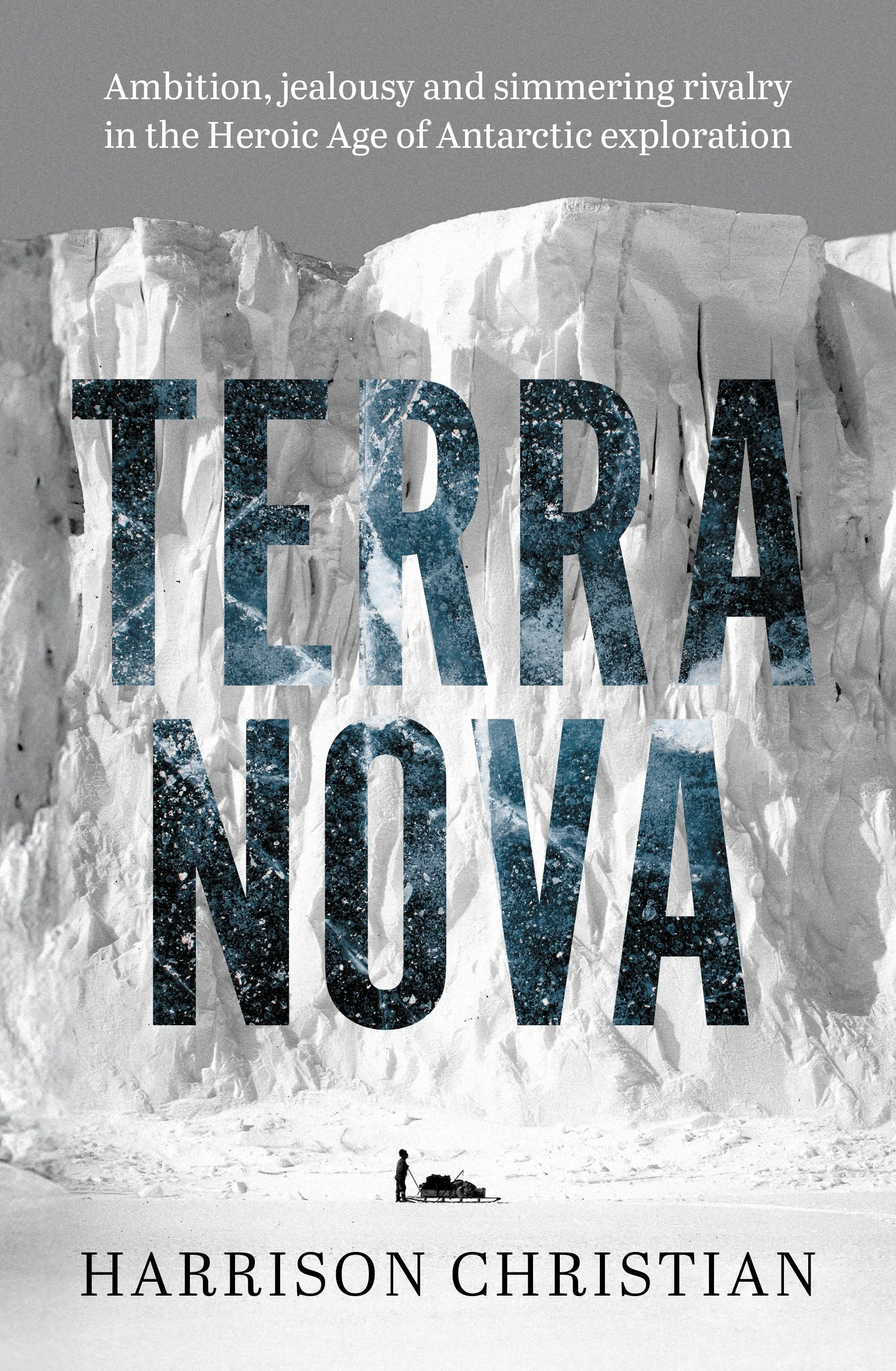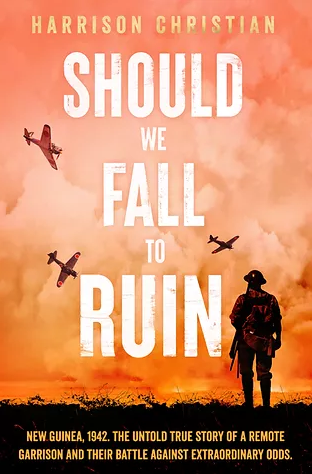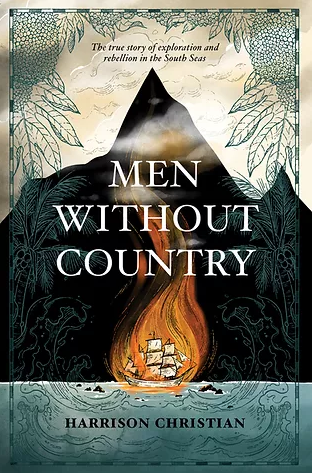For a long time it seemed Antarctica would remain the sole holdout in a nearly fully explored world. The approaches were too difficult and dangerous, and the material benefits to the exploring nations were too few … Far from being a land of plenty, the Antarctic continent – if it was that – was no place for human beings.
Robert Falcon Scott’s 1910 attempt to reach the South Pole is placed in jeopardy when Edward Evans joins as his second-in-command. A clash of personalities between the two men almost prevents the Terra Nova from sailing, but they forge ahead, conscious of competing expeditions racing to the pole.
On the treacherous journey across the Antarctic ice, the differences between the scientific-minded Scott and the ambitious Evans become insurmountable. Scott sends Evans back early, making the final push without him, only to find they have been beaten by the Norwegians.
When Scott and his remaining men make their desperate run back to base, they’re met with an inexplicable shortage of supplies, leading to the tragic deaths of the entire party.
Harrison Christian draws on fresh documents to examine the circumstances of Scott’s death, throwing suspicion on Edward Evans and other officers. Terra Nova delves into the lives of these remarkable men, revealing a story of betrayal that was left out of the official narrative.
Praise
‘A riveting account about Scott of Antarctica and the machinations of his demise. Of the food depots that were diminished and the rescue that never came.’
Peter Hillary, mountaineer and explorer
‘Harrison Christian has added another chapter to the most celebrated Antarctic story — one that compellingly hints at treachery amidst honour, and self-interest amidst sacrifice.’
Sunday Star-Times
‘Christian has the good non-fiction storyteller’s gift of ensuring the tale ticks along, avoiding unnecessary detail and narrative diversions. He is strong on the disagreements, resentments and divisions that existed among the 33 expedition members, who are too often portrayed as noble angels.’
Sydney Morning Herald
‘Even though you know how it’s going to end, it’s a page-turner as Christian uses letters and diaries to recount how the 1910 expedition progressed, the characters who made it and how they coped with the brutal conditions ... a deeply affecting tale.’
The Daily Telegraph
‘A carefully drawn, eminently readable portrait … The book sets a cracking pace from the start.’
New Zealand Listener
This is the untold story of a remote garrison of Allied soldiers on New Guinea during WWII who stood up to the Japanese invasion despite insurmountable odds.
When the Japanese invade in 1942, the Australian men and women stationed at the New Guinea port of Rabaul flee into the jungle. Written off by their government as ‘hostages to fortune’, the little-known garrison on Australia’s tropic frontier has been left with no modern equipment, no lifeline to the outside, and no means of escape. Most are captured and killed in the sinking of the prison ship Montevideo Maru, which remains Australia’s worst sea disaster. But the surviving soldiers and nurses carry on, to fight the Japanese on other fronts, or to witness the collapse of the Japanese Empire from the inside. Having borne the brunt of defeat, their letters and diaries also record the turning point of the war and the march to victory.
Rich in detail drawn from first person accounts, Should We Fall To Ruin illuminates this untold period in military history. It is a compelling tale of bravery and resilience in the face of a seemingly unstoppable enemy.
Praise
‘A gripping combination of the big and small picture … atmospheric and informed.’
Sydney Morning Herald
‘An important addition to the Australian wartime canon.’
The Saturday Paper
‘Exceptional.’
The Spinoff
‘A gripping real-life war-time tale.’
New Zealand Woman’s Weekly
Full of misadventure and mystery, Men Without Country is a sweeping history of the Pacific – from the origins of trade and exploration in the South Seas to a secret colony on Pitcairn Island.
A mission to collect breadfruit from Tahiti becomes the most famous mutiny in history when the crew rise up against William Bligh, with accusations of food restrictions and unfair punishments. Bligh’s remarkable journey back to safety is well documented, but the fates of the mutinous men remain shrouded in mystery. Some settled in Tahiti only to face capture and court martial; others sailed on to settle Pitcairn Island, the most remote inhabited island on earth, avoiding detection for twenty years. When an American captain stumbled across the island in 1808, only one of the Bounty mutineers was left alive. For the first time, the whole story of the mutiny on the Bounty – told by a direct descendant of Fletcher Christian, the man who led the rebellion.
Praise
‘Such a compelling read.’
New York Times Australia edition
‘An absolute ripper of a tale, an old story that new questions make relevant and fresh.’
The Saturday Paper
‘An unvarnished, unbiased account of the mutiny and its aftermath ... Rich in detail, but easy to read, this is a great retelling of the tale.’
The Daily Telegraph
‘In his highly readable book, Harrison Christian captures something of [Fletcher Christian’s] elusive personality, but also the terror of the mutineers’ precarious existence on Pitcairn and the brutal end that awaited many of them.’
New Zealand Listener


